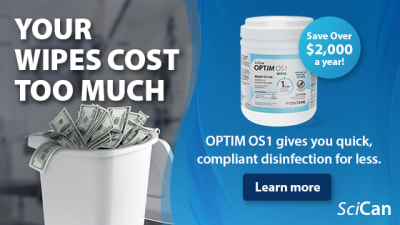Increasing Lead Conversion With AI Call Analysis
Artificial intelligence (AI) tools are often developed to enhance current workflows; however, some AI tools can be used to tackle tasks that simply could not be effectively addressed without them, and one of those tools is Patient Prism—a dental call tracking platform that has helped offices add $150,000 to $300,000 of revenue per year without spending any additional marketing dollars. "An entire year of Patient Prism can be paid for with one recovered patient, so the ROI is phenomenal," says CEO Amol Nirgudkar, whose product has been growing at a pace of approximately 80% per year and is now in 1,400 dental offices.
Nirgudkar did not set out to create an AI platform. After he became involved with dentistry as a certified public accountant, he pivoted to marketing approximately 8 years ago. He quickly realized that new patient phone calls alone did not lead to practice growth, so he began to analyze calls to dental offices. "Almost 50% of patients were unable to book appointments because the staff members did not know how to sell," Nirgudkar says. "They were creating barriers—financial, scheduling, etc-to booking appointments." Manually analyzing calls on an ongoing basis was not a realistic way to solve the problem, however. The labor would be cost-prohibitive, and the analyses would be completed too long after the fact for practices to effectively act. Nirgudkar thought about Amazon's virtual assistant technology and posed a question: "Could we train Alexa to understand dentistry?" The answer was yes. Through a technology known as natural language processing that teaches machines to understand human language, Patient Prism was born.

Your wipes cost too much
Patient Prism's AI has been programmed to understand conversational context via a 14-point inspection. Among other abilities, it can note if empathy is not expressed to a patient who is in pain or if an uninsured patient is not informed about financing options. It analyzes whether marketing is driving the types of patients that you want to your office, if those prospects are being converted to booked appointments, whether team members are trained to provide a positive experience and gain the patient's trust, and what operational challenges might be preventing a practice from growing. "For example, is capacity limiting you because your only available appointments are 3 months out?" Nirgudkar says. The system can also be used to reward team members for good performance, which can help with the office's culture and staff retention.
In the early days, each call took 3 hours to analyze because the AI needed to be supplemented by substantial human effort. "Today, it takes us 1 minute after the patient hangs up the phone to analyze who called, what they wanted, what the value was, whether they booked an appointment, and why or why not," Nirgudkar says. "We are the only company in the world that can do that accurately and within a minute." Every alert is accompanied by a targeted 1-minute training video, so the staff member can watch the video and call the patient right back. "We have identified that 25% of the people who are re-engaged decide to book appointments," Nirgudkar says. "That translates to anywhere from 60 to 100 new patients a year for most practices."
The overarching premise of Patient Prism is to efficiently provide what Nirgudkar calls "micrometrics" that go deeper than standard key performance indicators. "A prism allows you to see colors and perspectives that you could not see previously and to measure what could not be measured," he explains. "As management luminary Peter Drucker once said, ‘you cannot manage or improve what you do not measure.' For the first time in dentistry, we can measure conversations for how they relate to putting new patients in the chair in real time. We are delivering the gift of health to these patients and making dentists more profitable while doing so."
For more information, contact:
Patient Prism
patientprism.com • 800-381-3638
